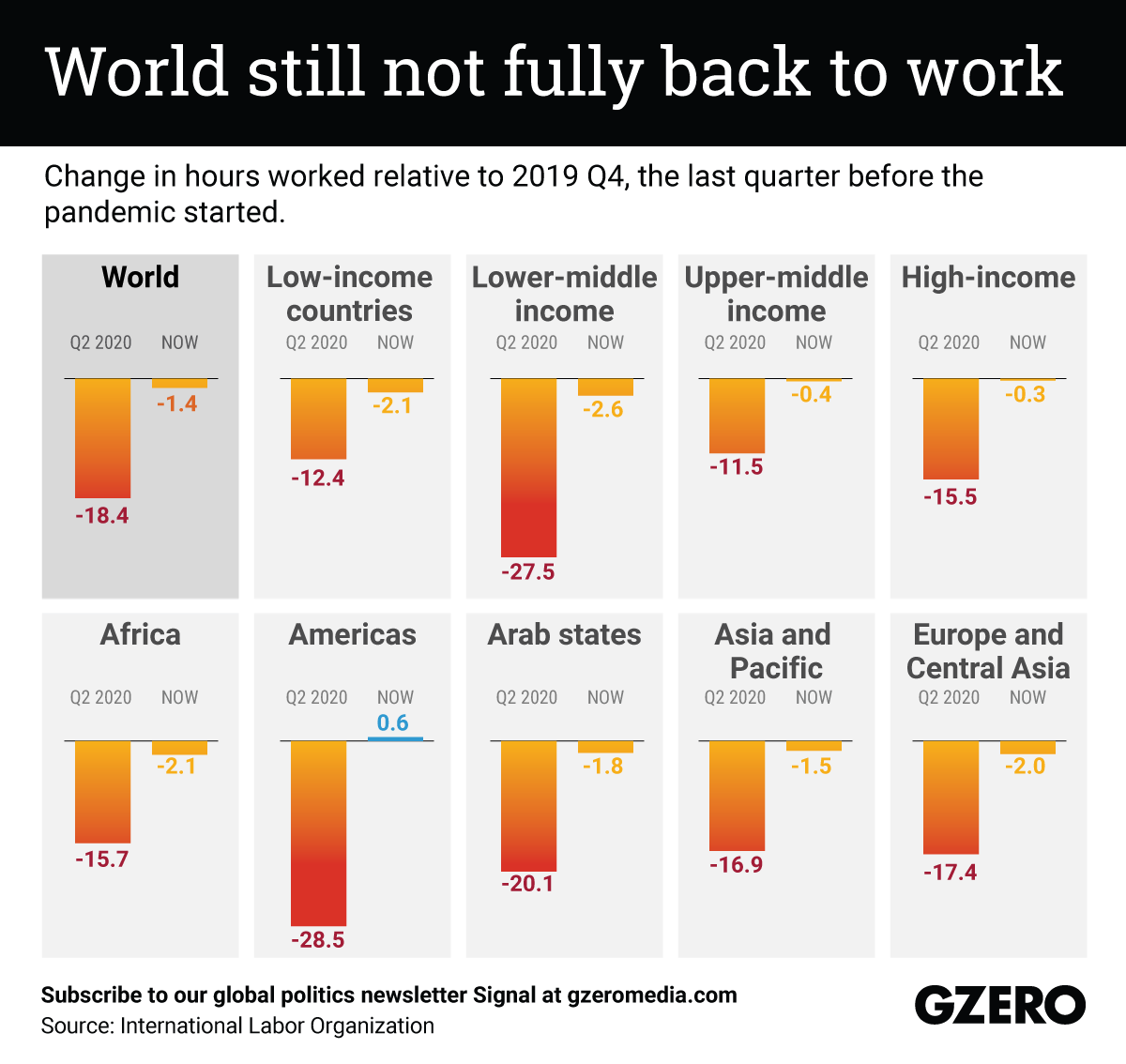November 16, 2022
It’s been almost three years since the COVID pandemic swung a wrecking ball through our societies, our economies, and our workplaces. But even now, with the most acute phase of the crisis behind us, many aspects of life still aren’t back to what they were in the B.C. (Before Coronavirus) era. One great example is the hours worked in our economies. When the pandemic struck, lockdowns and other restrictions caused the number of hours worked on a quarterly basis around the world to plunge by nearly 20% compared to the final quarter of 2019, the baseline for “last moments of pre-pandemic normalcy.” But since then, the world as a whole still hasn’t gotten back to pre-pandemic levels of hours worked — we’re still almost 1.5% below them. Lower-income countries are struggling more than rich ones to get back to where they were, and there is only one region of the world that shows more hours worked now than before the pandemic — can you guess which one it is?
More For You
President Trump has transformed the presidency—and the world—in 12 short months. Harvard’s Stephen Walt joins Ian Bremmer on the GZERO World Podcast.
Most Popular
Think you know what's going on around the world? Here's your chance to prove it.
Members of law enforcement gather, as tensions rise after federal law enforcement agents were involved in a shooting incident, a week after a U.S. Immigration and Customs Enforcement (ICE) agent fatally shot Renee Nicole Good, in north Minneapolis, Minnesota, U.S., January 15, 2026.
REUTERS/Ryan Murphy
This last week has provided a distillation of US President Donald Trump’s view on how American military might should be deployed at home and abroad.
Pro-government supporters holding a Venezuela's flag attend a rally against U.S President Donald Trump in Caracas, Venezuela August 14, 2017.
REUTERS/Ueslei Marcelino
When they meet at the White House today, Venezuelan opposition leader and Nobel Peace Prize winner María Corina Machado will seek to convince US President Donald Trump that it was a mistake to back Delcy Rodríguez as interim leader of Venezuela.
© 2025 GZERO Media. All Rights Reserved | A Eurasia Group media company.
